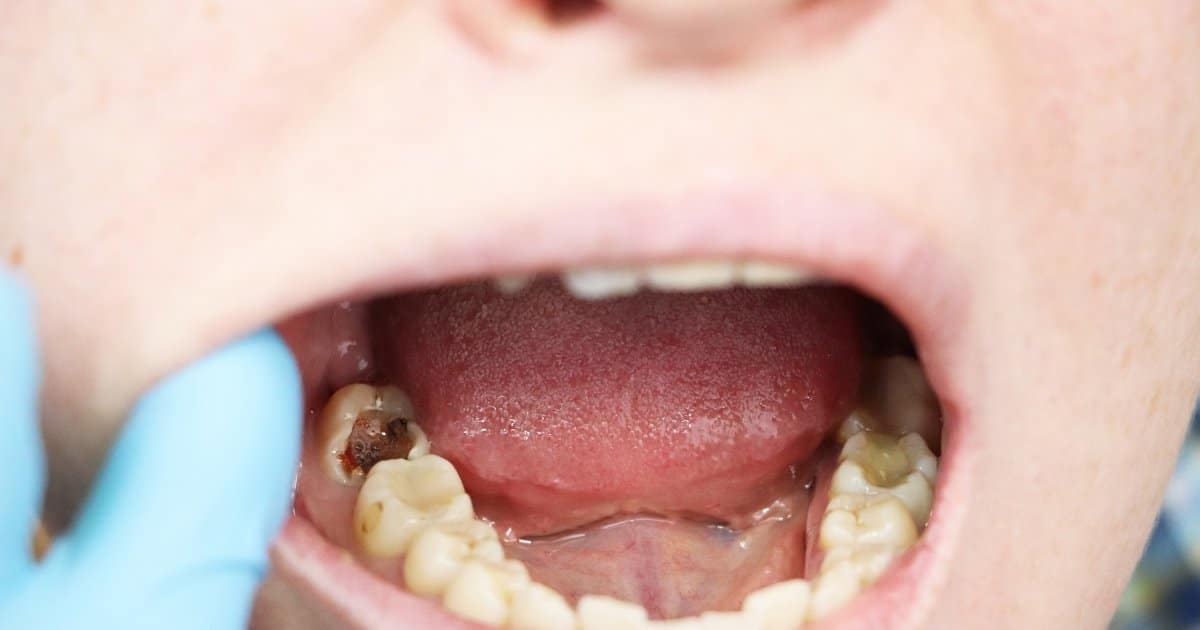Published on April 8, 2025

Want that shiny white smile while still dealing with cavities? Most often, people find themselves in the situation of choosing between whitening their teeth and addressing cavities. The truth is, whitening teeth with cavities may cause more damage than people think. Below are some things to ponder before whitening teeth, especially if you have decayed teeth.
What Are Cavities?
Dental caries, also known as decay, refers to the erosion of tooth enamel by bacteria. Gradually over time, with the help of acids secreted by these bacteria, a part of the tooth structure is destroyed, creating holes.
Once teeth decay, they become weakened and are much more susceptible to damage during any form of whitening treatment. That’s why you should treat your cavities before whitening, as these agents can irritate the dental problems.
The Basics of Teeth Whitening
The teeth whitening process is quite simple. It involves bleaching agents, of which hydrogen peroxide and carbamide peroxide are the most common. They oxidize external stains and additionally brighten the intrinsic color of the enamel. Whitening can be done using over-the-counter products such as strips or gels, or through treatment at a dental office.
Whitening is not a universal solution applicable to everyone since everyone has different conditions of enamel. It also works poorly with dental work such as fillings or crowns, or even areas of decay. If your mouth has cavities, these areas will likely not respond to whitening agents. In that case, you will most likely end up with uneven teeth.
What Are the Dangers of Whitening With Cavities?
The dangers associated with whitening teeth with cavities are the following:
- Increased sensitivity: When all the tooth structure has been damaged and exposed, whitening agents irritate the nerves inside. It causes increased sensitivity. It is during a deep cavity that you feel the most pain. Even after stopping the use of the products, some degree of sensitivity persists.
- Deeper layer destruction: The bleaching agents penetrate the enamel and break it down. However, cavities invite deeper penetration into deeper layers and perhaps to the pulp or nerve, worsening the injury and leading to severe complications that would require root canal treatment.
- Further Decay: Further whitenings will damage the already damaged enamel more, and with cavities, very severe damage can lead to expanded cavities, thus increasing the extent of decay. This increases the risk of infection and the likelihood of requiring more invasive procedures, such as crowns or extractions.
- Gum Irritation: Cavities that have formed near the gum line can be troublesome, causing pain or even leading to infections on their own. It can cause some harrowing scenarios and may require additional dental attention to treat them.
What Should You Do First?
The foremost thing before teeth whitening is a check-up with your dentist. The dentist will evaluate your oral health and identify any cavities or more serious problems before creating a suitable treatment plan. If you have any cavities, they need to be filled or treated before whitening, as this helps restore the bone structure of your teeth for safer later treatments.
What Whitening Procedures Are Safe After Treatment?
After treating cavities, it is safe to whiten your teeth. The safest method of whitening your teeth is through professional whitening treatment, which is performed under the guidance of a dentist. This approach will give you a bright, uniform smile without damaging your teeth. This is carefully monitored and ensures the safety of your teeth and gums.
For those unwilling to spend a lot of time doing this, customized whitening trays are available. These trays fit your teeth, allowing you to whiten them at home with a reduced risk of irritation or damage. Please remember that this procedure should only begin after your teeth have been cleaned and any cavities have been addressed by the doctor.
Whitening treatment can make your teeth look beautiful, but it shouldn’t cost you dental health. Above all, your oral well-being is paramount, and addressing cavities should be done before considering whitening treatments. With the right time and care, you can achieve a bright, healthy smile without compromising your dental health.
